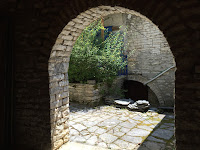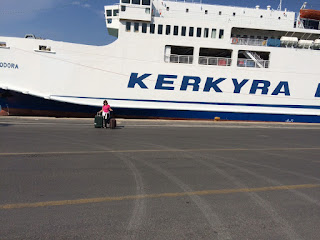There once was a woman who didn't know how to drive a car. She promised herself every January—with a list of other promises—that she'd finally learn to drive. But it seemed too complicated, all those gadgets and buttons and well, her husband, Bert, had always done that sort of thing. But when at the age of 75, she watched poor old Bert reach for his jacket in the back seat of their beat-up old sedan and slump lifelessly to the floor, she realized her time to learn to drive had arrived. First she dialed 911 and received a recorded message, then she screamed for her neighbor who appeared to not be home. Then she pushed poor old Bert further into the back seat, closed the door, got into the driver's side and backed the car out of the driveway with all the speed and prowess of Mario Andretti.

The hospital was only 3 blocks away so she didn't have much time to think about the fact that she was, for the first time in her life, in the driver's seat.
But when she did have time to reflect on it (and after she found out that poor old Bert was okay), she felt very proud and happy. And then she felt very sad.
"But why, granny?" her awestruck teenaged granddaughter asked, "Why are you sad? You should be proud!"
"My dear," Granny looked at her with solemn eyes, "it's an awful feeling, at my age, to realize you can do something you thought you couldn't." She shook her head slowly. "And worse than that, is wondering about all those other things you hadn't tried because you thought you couldn't."
Granny has a good point, doesn't she? Forget about January promises. Let's just go out there and do the things we still have time to do!
I'd love to hear from you! authorfagiolikatsiotas@gmail.com




































